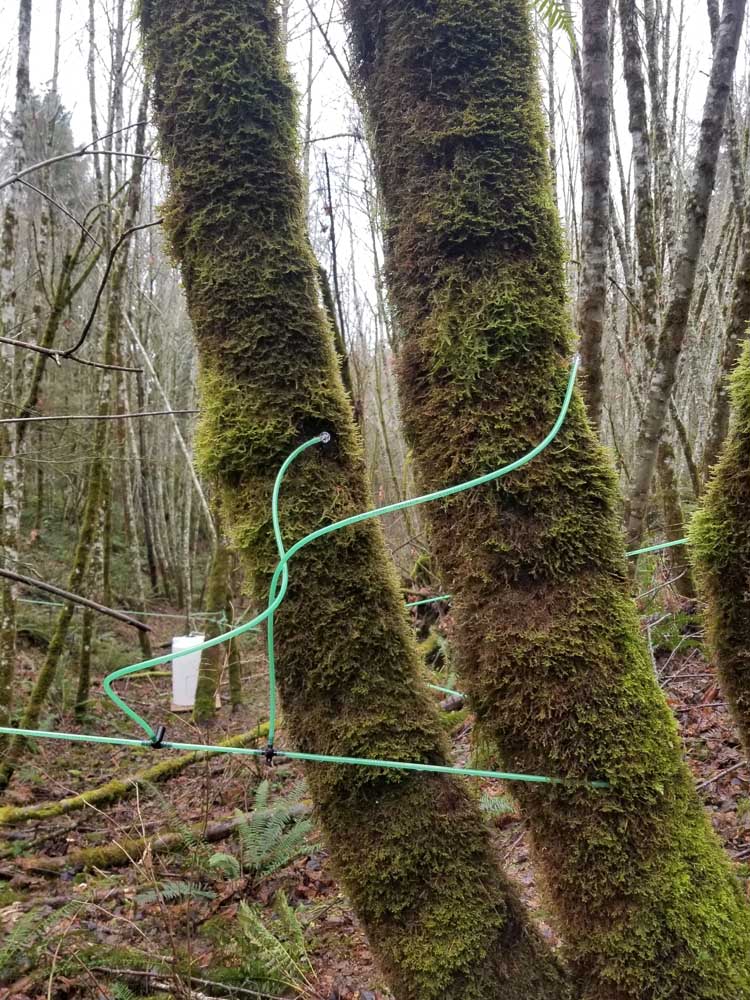Oregon big leaf maple syrup bill heads for Senate floor vote
Published 3:45 pm Tuesday, February 21, 2023

- Bigleaf maple trees are tapped for maple syrup in December 2020 as part of a regional project to explore possible commercial production. Washington State University Extension hosted a webinar Jan. 12.
SALEM — Maple syrup would be added to the list of farm products that Oregon growers can sell directly to the public under a bill headed for a Senate floor vote.
On Feb. 21, the Senate Labor and Business Committee unanimously approved Senate Bill 882, would would exempt maple syrup producers from food establishment licensing requirements.
The decision clears the bill for a vote before the full Senate, though that’s not yet been scheduled.
Sen. Brian Boquist, SB 882’s chief sponsor, characterized it as a “two-word bill,” since it simply adds “maple syrup” to the list of foods included in the state’s farm direct marketing law, such a fresh produce, eggs, honey and certain fruit-based preserves.
With help from Oregon State University, small woodland owners have been trying to bring to market syrup from the state’s big leaf maples, Boquist said.
The state’s Department of Agriculture is also interested in commercializing the product but cannot change the regulations on its own, Boquist said.
“They’re constrained by the law and they’re not allowed to add maple syrup to the list of farm direct products, either,” he said.
Big leaf maples generate relatively small amounts of syrup, so farmers markets and roadside stands would be natural sales venues if the statute is revised, said Tom Nygren, a small woodland owner near Hillsboro, Ore.
Syrup could provide forestland owners with another source of income between logging operations, he said. “While there are periodic opportunities for timber harvest, sometimes many years apart, there are much more frequent needs to pay for taxes, road maintenance, fire protection and more.”
Currently, Oregon’s big leaf maples are considered to be of low value for commercial timber production, but syrup from these and other sap-producing trees can encourage diversified forests, said Gary Pendergrass, a landowner near Sheridan, in submitted testimony.
“The leap from tapping a single tree in your backyard to scaling up to a full commercial kitchen is rarely feasible without a large capital outlay and the need for additional experience and expertise,” he said, adding that SB 882 could help overcome this hurdle by allowing direct marketing.
Due to its high sugar and low water content, maple syrup is a shelf-stable product that poses a low food safety risk and offers an entry point for on-farm processing, said Eric Jones, an OSU assistant professor researching the industry.
“Syrup made from the sap of maple and walnut trees is an emerging industry with a lot of momentum,” he said. “It’s my professional opinion that is has a high potential to make a long-lasting positive impact on small farmers in Oregon.”
Another bill being considered in the Senate, SB 507, would make broader reforms to farm direct marketing law.
Confusion has arisen over a possible amendment to that bill, which would add maple syrup to the list of farm direct products, Boquist said. The amendment hasn’t yet been formally proposed or adopted.
If that bill is amended to include maple syrup and ends up gaining traction, it could eventually be merged with SB 882, the standalone maple syrup bill, he said. “Why maple syrup has become a political tool, I do not know.”






